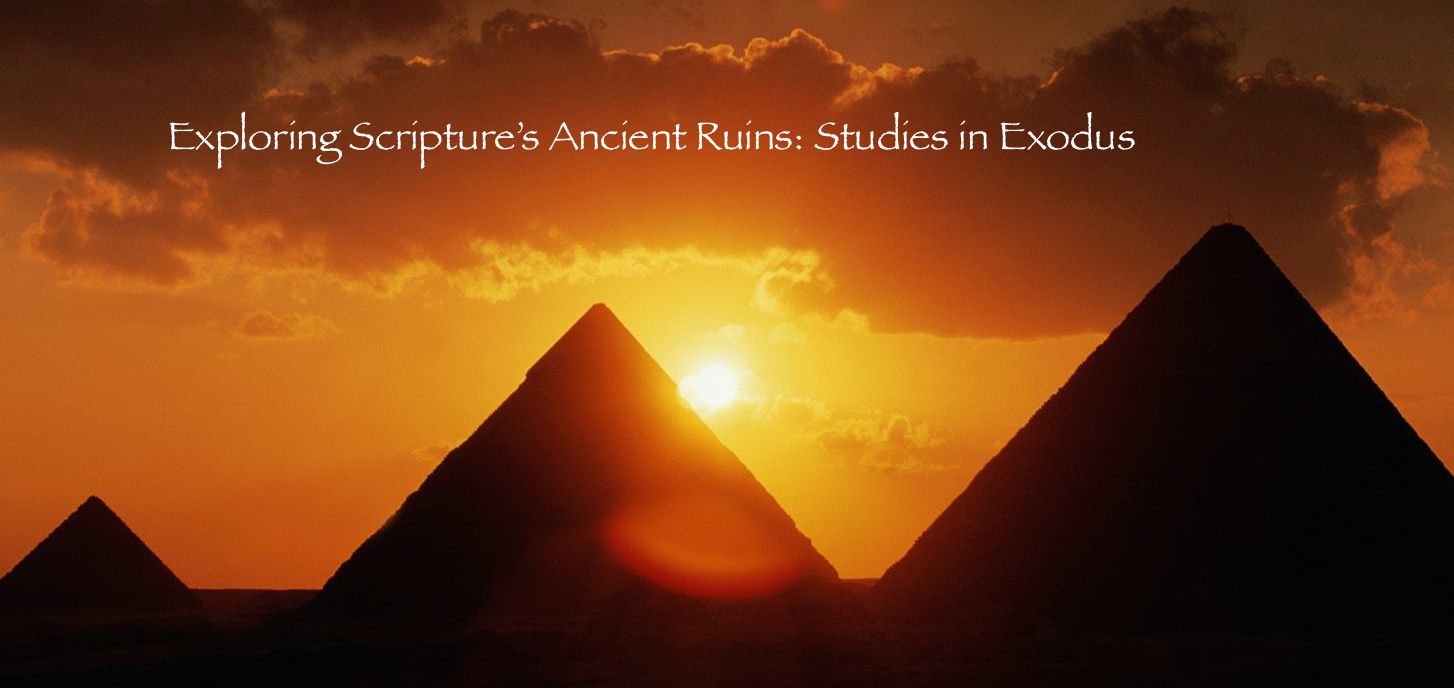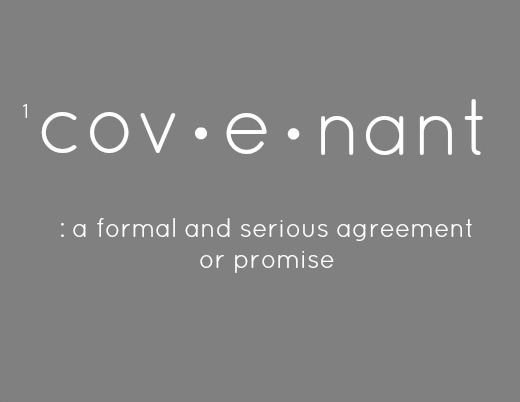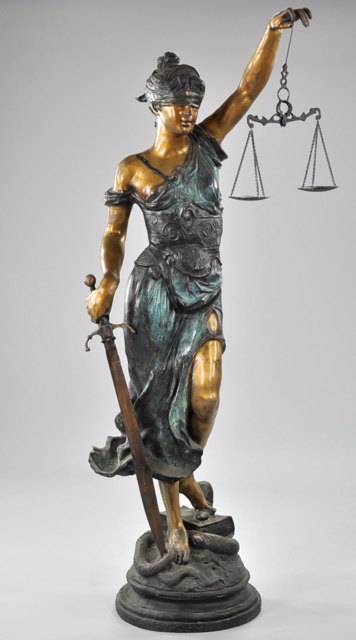©1998-2015
Fellowship @ Cross Creek
Life of Moses
Exodus 22:1-15
When Life Goes Awry…
9/7/3; ed. 8/16/15
Introduction…Had a bad break happen to you lately? Ever break something that belonged to someone else? Did someone break something of yours that you had loaned to them? How did it make you feel? Guilty? Angry? Did you and your friend talk about it? Did you resolve it? Did it tear apart your friendship? Why? Why are rules, laws and principles so important if people are to live in community with one another?
How do people, teachers, parents, coaches, referees, officials, officers of the law determine what is fair or right? Have you ever just absorbed the loss when the other person was at fault, but didn’t think they were?
Below are some more rules or laws to think about in how humans deal with one another? What do they teach you about God? About life? About people?
General Introduction:
Moses, led by God, is leading the children of Israel, perhaps as many as 2-3 million strong, away from Egypt and closer to the land promised to their forefathers seven centuries before. Their journey has not been without its problems. Having overcome food, water and leadership issues and a threatening military foe, God’s people have reached his mountain–the same place where Moses was called by God to lead Israel out of Egypt.
There, Israel, having physically and spiritually purified herself, has taken her vows before God. Yahweh now through Moses begins to spell out the contract or covenant in more detail. In other words, if you are going to be my people and represent me to the world, these are the rules you must live by. These are the rules that will set you apart and above the world.
These are the rules that will set you apart and above the world’s godless din.
These rules are commonly called the LAW or the Mosaic Law or the Mosaic Covenant, since quite obviously, Moses mediated the covenant between Yahweh God and his bride, the children of Israel.
The first ten rules, vows or commands were referred to as the TEN COMMANDMENTS. They involve exclusive faithfulness to God as opposed to all other gods or idols, as well as, relational commands with respect to getting along with one another within the covenant community. They begin with the honoring of one’s aged parents, as well as commands not to kill, steal, bear false witness, covet or commit adultery against one another.
With these rules, and God as their king, Israel has a government—a theocracy—and has become a nation.
Following the first Ten Commandments the Law very quickly turns its attention to addressing and raising the ethical/legal/moral bar concerning the ancient institution of how does one treat another person whom they own—the custom or practice of slavery, an institution capable of great inhumanity. Following these commandments on dealing with how to treat someone you own, the Law, by taking into consideration such things as intent, personal responsibility and what is fair?, demonstrates very quickly, that it is capable of handling the most complicated of human indiscretions directed intentionally or unintentionally at another.
Pray…
Read Passage several times…
Ask Questions…
Exod. 22:1 If a man steals an ox or a sheep and slaughters it or sells it, he must pay back five head of cattle for the ox and four sheep for the sheep.
Was a cow equal to an ox so that this is a five to one pay back? The sheep is a four to one pay back? In essence, if proven, Yahweh is teaching his bride, stealing is more expensive than you could ever imagine. In other words, crime does not pay.
Note: it would seem that punishment for criminal behavior has become so reduced in some cultures, including our own, that crime certainly can pay.
2 If a thief is caught breaking in and is struck so that he dies, the defender is not guilty of bloodshed; 3 but if it happens after sunrise, he is guilty of bloodshed. A thief must certainly make restitution, but if he has nothing, he must be sold to pay for his theft.
Someone is allowed to defend their property or possessions, if it is during the night. If done during the day, when one can see, one is not allowed to kill the thief? In other words, property does not equate to life, even criminal life?
But what if the thief, cannot pay? Then he becomes a slave to pay for what he was attempting to steal.
4 If the stolen animal is found alive in his possession –whether ox or donkey or sheep –he must pay back double.
As opposed to not alive? What about v. 1 and the five or four to one steep replacement value of a ox or sheep stolen?
5 “If a man grazes his livestock in a field or vineyard and lets them stray and they graze in another man’s field, he must make restitution from the best of his own field or vineyard. 6 “If a fire breaks out and spreads into thornbushes so that it burns shocks of grain or standing grain or the whole field, the one who started the fire must make restitution.
Again, irresponsibility. One is responsible for his livestock or the damages he causes, even if accidently. Indirectly stealing or taking another’s pasture or harvested grain has consequences, even if not intentionally.
7 If a man gives his neighbor silver or goods for safekeeping and they are stolen from the neighbor’s house, the thief, if caught, must pay back double. 8 But if the thief is not found, the owner of the house must appear before the judges to determine whether he has laid his hands on the other man’s property.
Again, this all goes back to the original cause, but also personal responsibility? If I am entrusted with another’s possession, there is a responsibility for ensuring its security.
9 In all cases of illegal possession of an ox, a donkey, a sheep, a garment, or any other lost property about which somebody says, `This is mine,’ both parties are to bring their cases before the judges. The one whom the judge declares guilty must pay back double to his neighbor.
So there is a trial before an adjudicating judge who listens to the evidence.
10 If a man gives a donkey, an ox, a sheep or any other animal to his neighbor for safekeeping and it dies or is injured or is taken away while no one is looking 11 the issue between them will be settled by the taking of an oath before the LORD that the neighbor did not lay hands on the other person’s property. The owner is to accept this, and no restitution is required. 12 But if the animal was stolen from the neighbor, he must make restitution to the owner. 13 If it was torn to pieces by a wild animal, he shall bring in the remains as evidence and he will not be required to pay for the torn animal.
Apparently, when the evidence is not clear as to how the animal disappeared, one’s sworn testimony is crucial to rendering a decision of personal responsibility.
14 If a man borrows an animal from his neighbor and it is injured or dies while the owner is not present, he must make restitution. 15 But if the owner is with the animal, the borrower will not have to pay. If the animal was hired, the money paid for the hire covers the loss.
Who, Where and When optional…
What?
• There is a specific price of restitution and penalty paid for stealing someone else’s livestock. 1
• If a thief is caught and killed at night, the owner is not charged. 2
• But if the thief is killed during the daylight, the owner is guilty of taking a life. 3
• If a thief can’t make restitution, he can be sold to help pay for his theft. 3b
• If the thief is caught in possession of the stolen animal he must pay back double. 4
• If a man’s livestock trespasses onto someone’s land, the livestock’s owner must make restitution for any damages. 5
• If a fire breaks out and destroys someone else’s land, then the owner must make restitution. 6
• If a thief takes property from someone who is keeping it for someone else he must pay double. 7
• But if the thief is not found, then the one who was keeping the property must appear before a judge to determine if he is the thief. 8
• In a case when two parties claim possession to the same property their case is brought before a judge who will listen to both sides and make a determination, with the guilty party making double restitution to the offended party. 9
• If something happens to one man’s property while in the safekeeping of another while no one is looking, then the one keeping the property must take an oath that he did take the property. 10-11
• But if the animal was stolen while it was in another person’s keeping or use, then restitution must be made. 12
• If the animal was torn to bits by another wild animal, the animal’s parts will be brought in as evidence, and no restitution shall be made. 13
• But if the animal is borrowed and it dies, then restitution shall be made to its owner. 14
• Unless the owner is present with the animal at time it is being borrowed. 15a
• But if the animal was hired out and the owner is not present, then the price for hire becomes the restitution. 15b
Bottom line…Once again, Yahweh God demonstrates both fairness and trust in dealing with conflicts between his people.
Why? (What truths do I learn about God, man, people, myself, life?)
• God is very detailed.
• God considers many possible angles and possibilities. He leaves no stone unturned.
• God is fair. There is a sense of equality concerning his laws.
• Restitution is graduated based on intent of the action. Theft carries a greater penalty, than negligence. Accidents are understandable.
• God holds men accountable for their actions, especially their negligence.
• Accidents will happen and God has made provision for that.
• God understands that men may lie, and has provided oaths and judges for determining the truth.
• The entire Law seems to be about protection…protecting people’s implied rights and property.
So What?
Application…
Thanksgiving…Witnessed God’s mighty hand again this week. It was scary. Went into a situation that I was not familiar with. Took some prayerful risks, but in the end, and for now, just as I had hoped and imagined, our prayerful plan worked to Spiritual perfection., and a hard, wayward heart began to soften. God you are amazing! I am so so grateful.
Struggle…Sick…summer cold. But not the worst in the world. Just causes me to drag a bit and not get everything I am wanting to get done, completed. Still got a lot done, though, for which I am very very thankful. God is good. Very good.
Truth…God is fair; he cares about the details; intent matters; personal responsibility matters; accidents will happen; mistakes will happen; this is a fallen world; evil takes place, and sometimes it is no one’s fault. It just is. A wild animal attacks someone else’s livestock while in my position. I did the best I could to protect it, but it was attacked or stolen. The law takes all this into account when it renders fair judgments between God’s people living in community with each other. Whether we like it or not, we all live in covenant with one another. Rules, laws, truth, customs, traditions and extenuating circumstances not only matter, but regulate our lives and interpersonal interactions. Life is covenant, whether we get it or not, and that was what God was bringing to Israel…covenant with God and covenant with man…Spiritual community.
Application…While the Law is a great beginning to shaping a moral ethic towards dealing with others, including what is fair, right, true, legal etc., I am now under the covenant of grace, which has been ratified by the Son’s blood or death, but has given me the Spirit of God to lead me through life’s many complexities, for which I am very grateful!
Your Struggle?
Truth?
Applications?
Scripture quotations, unless noted otherwise, are taken from the Holy Bible: New International Version‚ NIV‚ Copyright 1973, 1978, 1984, International Bible Society. Used by permission of Zondervan Bible Publishers. All rights reserved.





